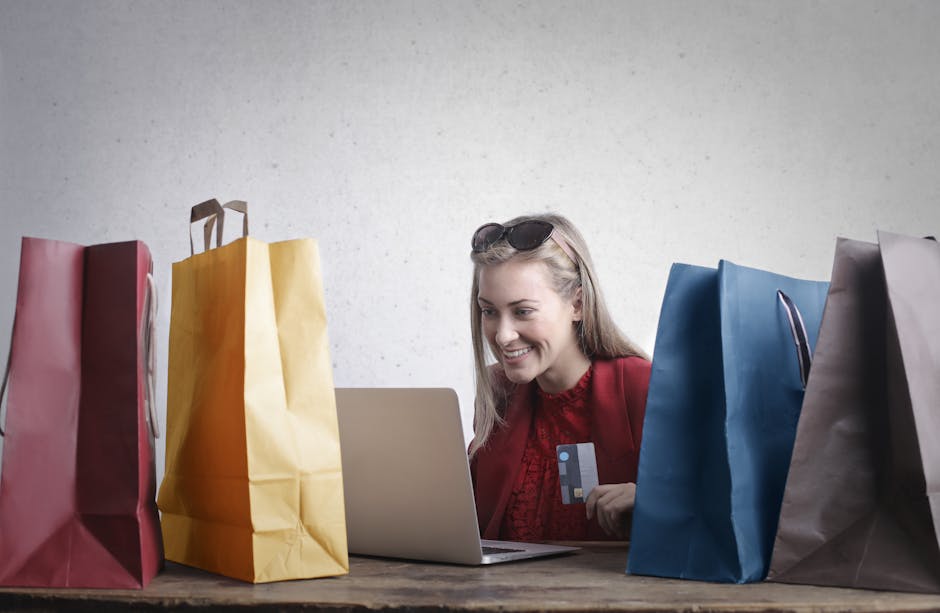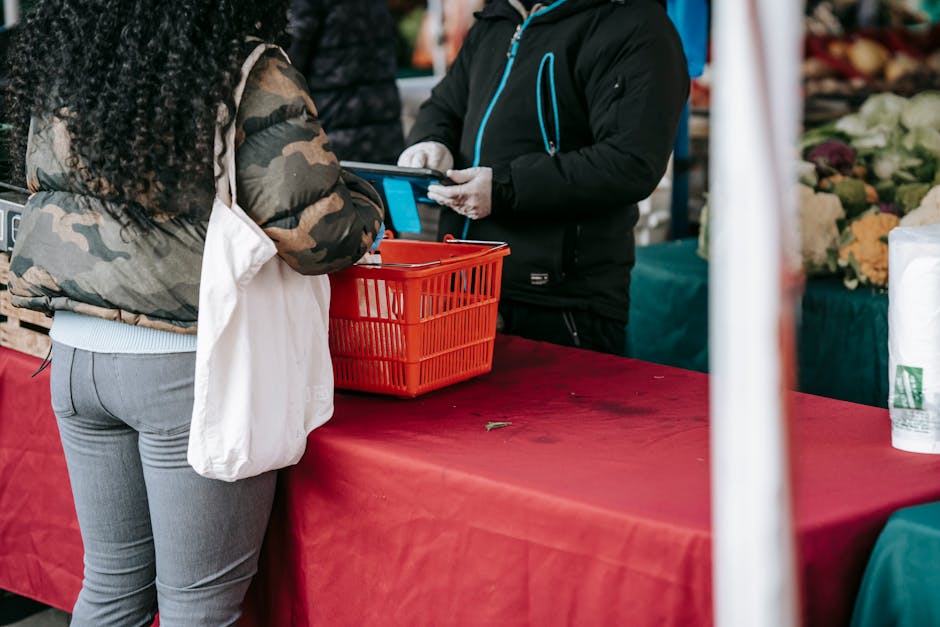How to Safely Buy and Sell Items Online: Best Practises
In the vast realm of online marketplaces, where virtual transactions reign supreme, ensuring the safety and security of buying and selling items becomes paramount. Navigating through the digital landscape requires a careful balance of vigilance and knowledge.
This article delves into the best practises to safeguard your interests as a consumer or seller. From choosing reputable platforms to employing secure payment methods, we provide detailed guidance to empower you in your online endeavours.
Take control and embrace the art of safe and successful virtual transactions.
Key Takeaways
- Read online marketplace reviews and choose reputable platforms
- Verify the credibility of sellers through online reviews and professional online presence
- Use secure payment methods and protect personal and financial information
- Meet in safe locations for local transactions, prioritising personal safety and visibility
Choose Reputable Online Marketplaces

Select trustworthy and established online marketplaces to ensure a safe and reliable buying and selling experience. When engaging in online transactions, it is crucial to prioritise the security of both your personal information and financial transactions.
One effective way to determine the trustworthiness of an online marketplace is to read online marketplace reviews. These reviews provide valuable insights into the experiences of other users, allowing you to make an informed decision.
Scams and fraudulent activities are prevalent in the online marketplace industry, making fraud prevention a top priority. Reputable online marketplaces employ robust security measures to protect their users from scams. They often have dedicated teams that monitor and verify sellers and buyers, ensuring that only legitimate transactions take place.
Additionally, these marketplaces implement secure payment methods, such as encryption and fraud detection systems, to safeguard financial transactions.
By choosing a reputable online marketplace, you gain a sense of control over your buying and selling experience. You can trust that your personal information will be handled with utmost care and that your financial transactions will be secure.
Furthermore, reputable marketplaces provide avenues for dispute resolution, ensuring that any issues that may arise during the transaction process are resolved efficiently and fairly.
Ultimately, selecting a trustworthy online marketplace is an essential step in ensuring a safe and reliable buying and selling experience.
Verify the Seller’s Credibility

To ensure a secure and trustworthy buying and selling experience online, it is crucial to thoroughly verify the credibility of the seller. Building trust with the seller is essential before proceeding with any transaction. One of the effective ways to assess a seller’s credibility is by checking online reviews.
Online reviews provide insights into the seller’s reputation and the experiences of previous buyers. Look for reviews on reputable platforms that are known for their authenticity and reliability. Pay close attention to the overall rating and read through the comments to get a better understanding of the seller’s reliability, communication skills, and the quality of their products or services.
When reading online reviews, it is important to consider the number of reviews and the consistency of the feedback. A seller with a significant number of positive reviews is likely to be more trustworthy than one with only a few reviews. However, be mindful of any negative reviews and evaluate whether they are isolated incidents or a recurring issue.
In addition to online reviews, consider other factors that can help verify the seller’s credibility. Cheque if the seller has a professional website or social media presence. Look for contact information, such as a phone number or email address, and reach out to the seller directly to ask any questions or clarify any concerns you may have.
Use Secure Payment Methods

Securely and consistently utilise trusted payment methods when buying and selling items online. It is crucial to ensure that your financial transactions are conducted securely to protect your personal and financial information. Here are four key points to consider when using secure payment methods:
-
Benefits of escrow services: Consider using escrow services for high-value transactions. Escrow services act as a neutral third party that holds the funds until both the buyer and seller are satisfied with the transaction. This provides an added layer of security and helps prevent fraudulent activities.
-
Importance of reading product descriptions carefully: Before making a purchase, carefully read the product descriptions to ensure that you are getting exactly what you expect. Pay attention to details such as size, colour, condition, and any additional features or accessories. This will help you avoid any potential misunderstandings or disputes.
-
Use trusted payment gateways: When making online payments, use well-known and reputable payment gateways such as PayPal, Stripe, or Apple Pay. These platforms have robust security measures in place to safeguard your financial information and provide buyer protection services.
-
Avoid sharing sensitive information: Be cautious when sharing sensitive information such as credit card details or bank account numbers. Only provide this information through secure channels, and be wary of suspicious requests for personal information.
Protect Your Personal Information

When engaging in online transactions, it is essential to prioritise the protection of your personal information. Online privacy is a major concern in today’s digital landscape, as cybercriminals are constantly looking for opportunities to steal sensitive data and commit identity theft. To safeguard your personal information, there are several best practises you should follow.
First and foremost, be cautious about sharing personal details. Only provide the necessary information required for the transaction and avoid sharing unnecessary data. It is also crucial to use strong, unique passwords for all your online accounts and regularly update them. Consider using a password manager to generate and securely store your passwords.
Furthermore, be wary of phishing attempts. Cybercriminals often employ deceptive tactics to trick individuals into revealing their personal information. Avoid clicking on suspicious links or downloading attachments from unknown sources. Instead, directly access websites by typing the URL into your browser.
Lastly, consider using privacy tools and technologies such as virtual private networks (VPNs) and encryption software to add an extra layer of protection to your online activities.
By following these best practises, you can significantly reduce the risk of online privacy breaches and identity theft.
Now, let’s explore another important aspect of safe online transactions: meeting in safe locations for local transactions.
Meet in Safe Locations for Local Transactions

To ensure the safety of local transactions, it is important to choose secure meeting locations. Meeting in safe locations not only protects your personal safety but also reduces the risk of scams or fraudulent activities.
Here are four key considerations when selecting a meeting place for local transactions:
-
Public versus private meet-ups: Opt for public places with a high level of foot traffic, such as coffee shops, shopping malls, or police stations. These locations provide a sense of security and reduce the risk of encountering suspicious individuals.
-
Ensuring personal safety during transactions: Prioritise your safety by avoiding secluded or poorly lit areas. It is advisable to conduct transactions during daylight hours to maximise visibility and reduce the chances of any untoward incidents.
-
Surveillance and security measures: Choose locations with surveillance cameras or security personnel. This helps deter potential criminals and provides an added layer of protection.
-
Familiarity with the area: Select meeting places in areas that you are familiar with or have visited before. Being familiar with the surroundings can help you navigate the area more confidently and identify any potential risks.
Conclusion
In conclusion, when engaging in online buying and selling, it is crucial to prioritise safety and follow best practises.
By choosing reputable online marketplaces, verifying the credibility of sellers, using secure payment methods, and protecting personal information, individuals can mitigate the risks associated with online transactions.
Furthermore, meeting in safe locations for local transactions adds an extra layer of security.
Remember, when it comes to online commerce, it is better to be safe than sorry.
Contact us to discuss our services now!

